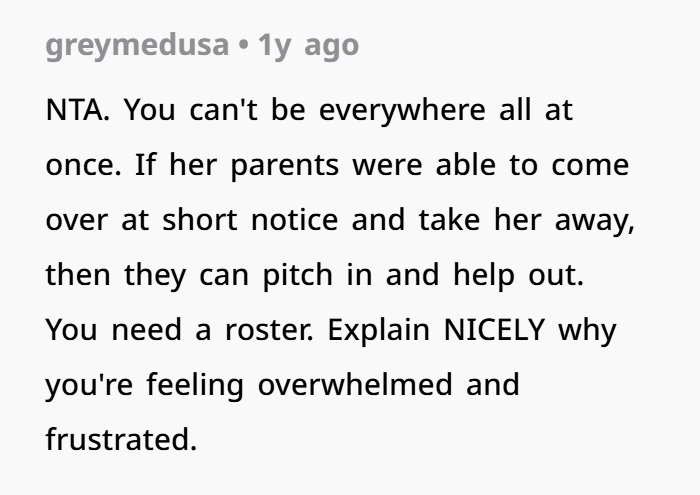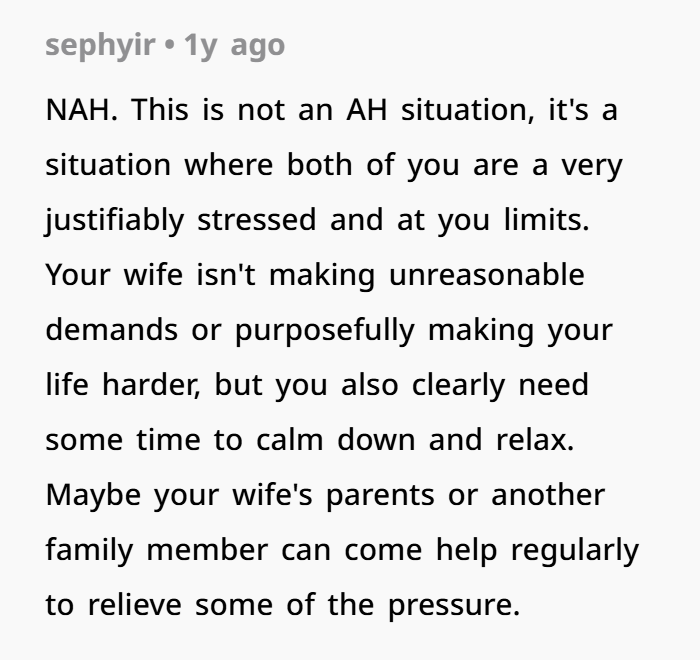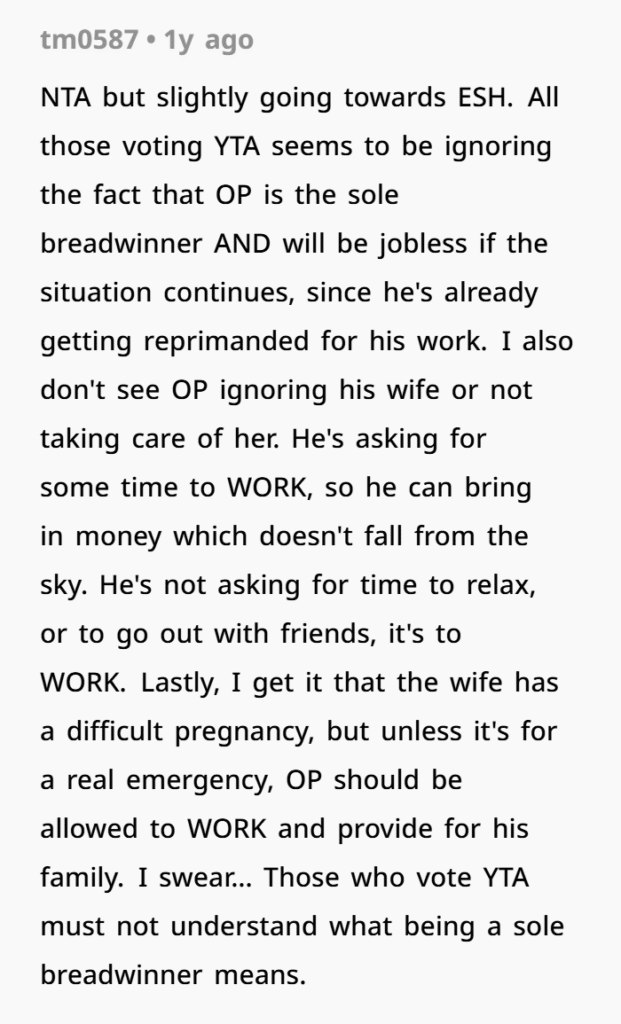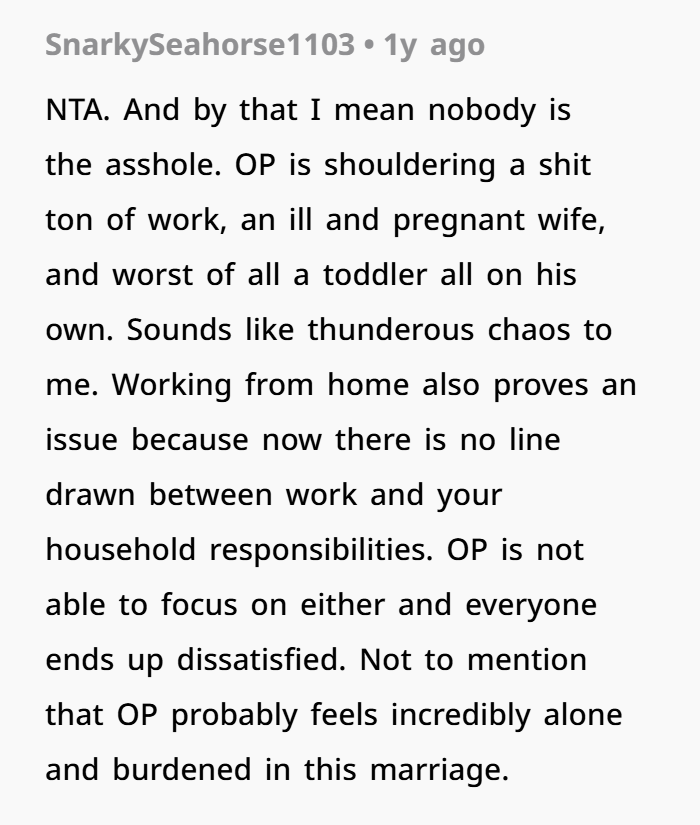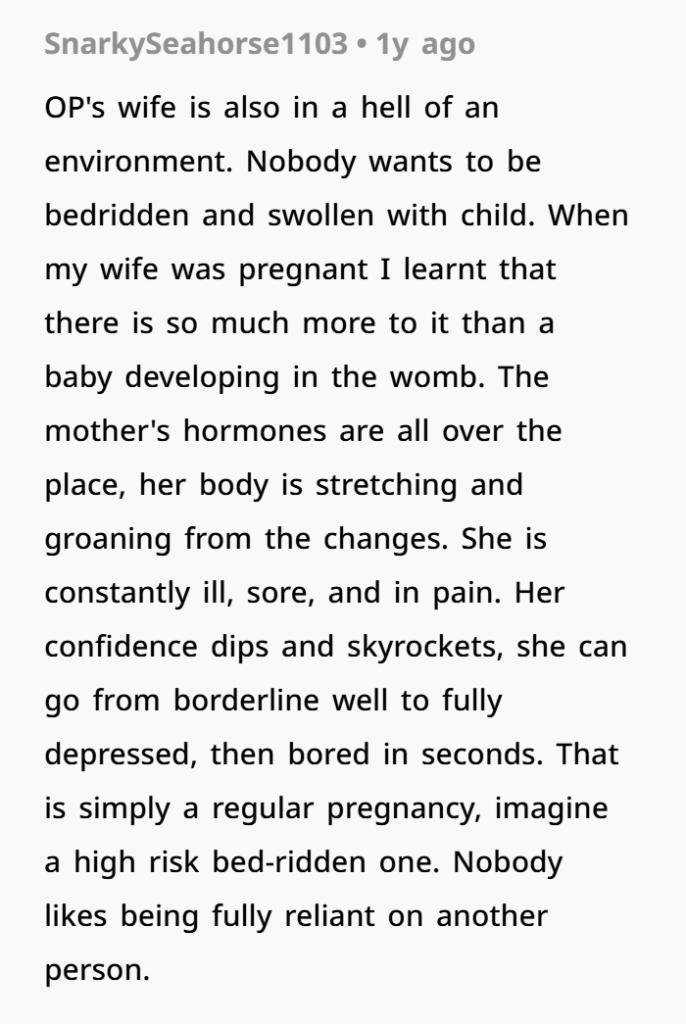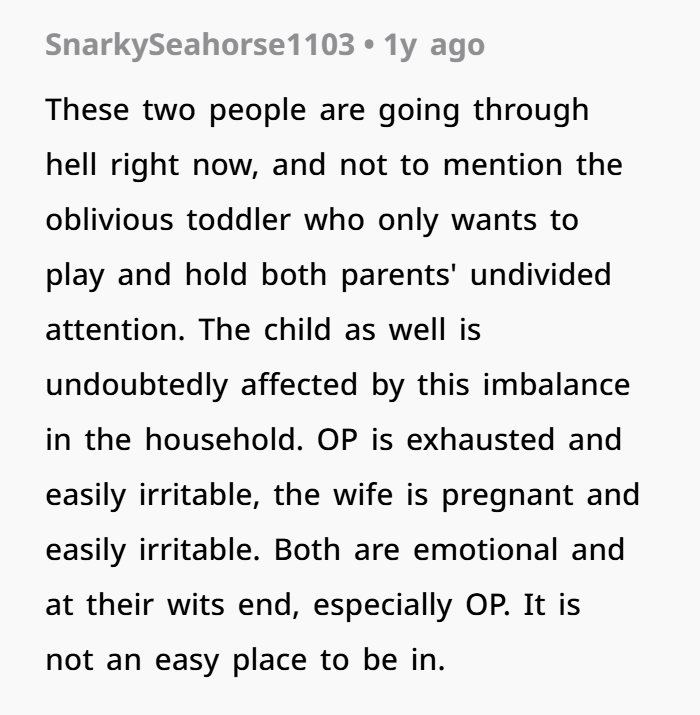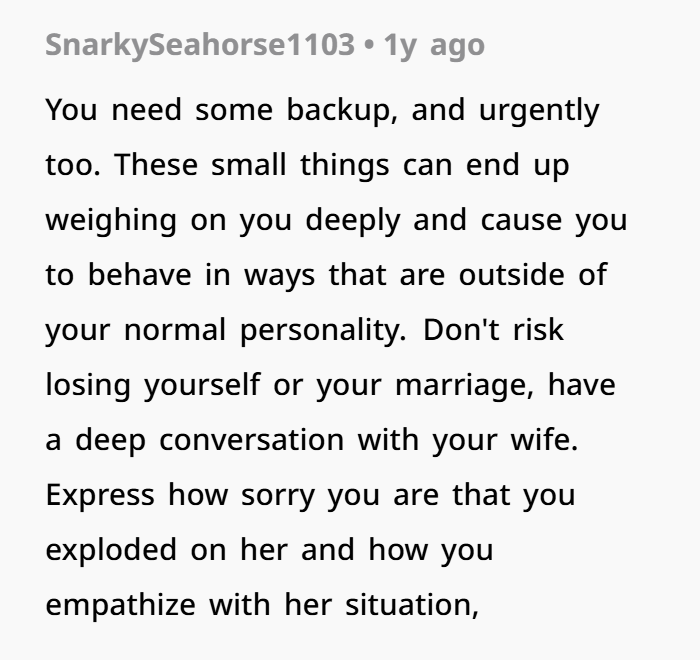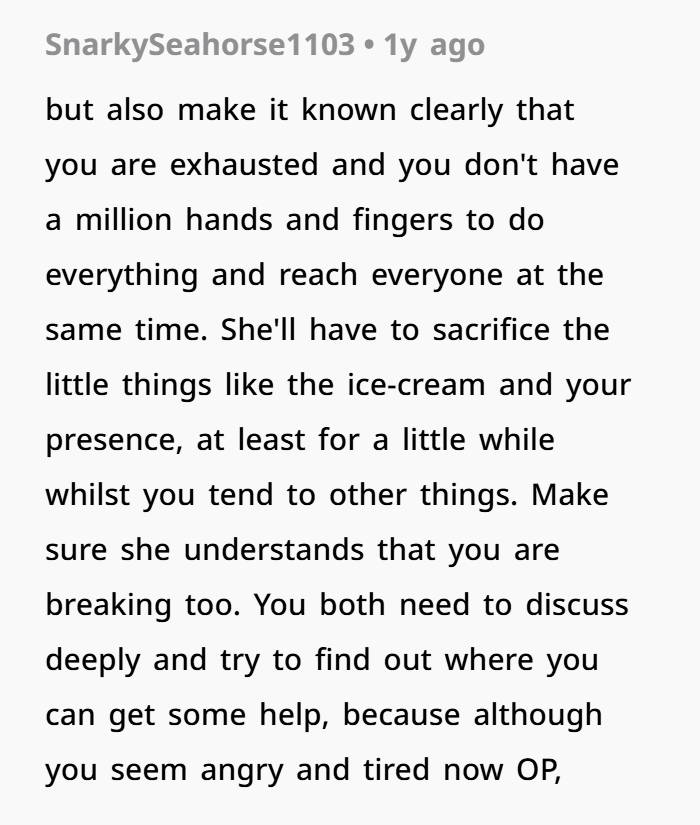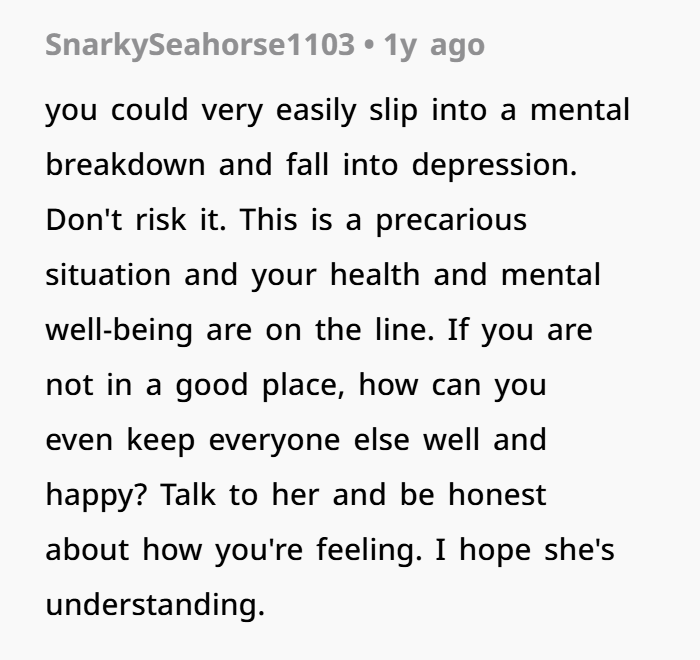When Stress and Suffering Break the Line Did I Go Too Far?
You and your wife were expecting your second baby, but she’s on bed rest for a high‑risk pregnancy. You’ve been juggling your remote work, caring for your toddler, running the household, and supporting her. Lately, she’s been asking for many small tasks or distractions. During an important meeting, a chain of mishaps (a fried TV, kid panicking, etc.) forced you to interrupt the meeting, and you snapped at her, saying, “Why are you making my life harder than it needs to be?” She felt deeply hurt, left with her parents, and things escalated.
You ask: was asking for one hour of no interruption unreasonable? Did you cross the line in your reaction? AITA?
Women need to be careful during a high-risk pregnancy, but there’s still a line to the demands they should make

This husband just couldn’t keep up with his wife’s whims and finally snapped

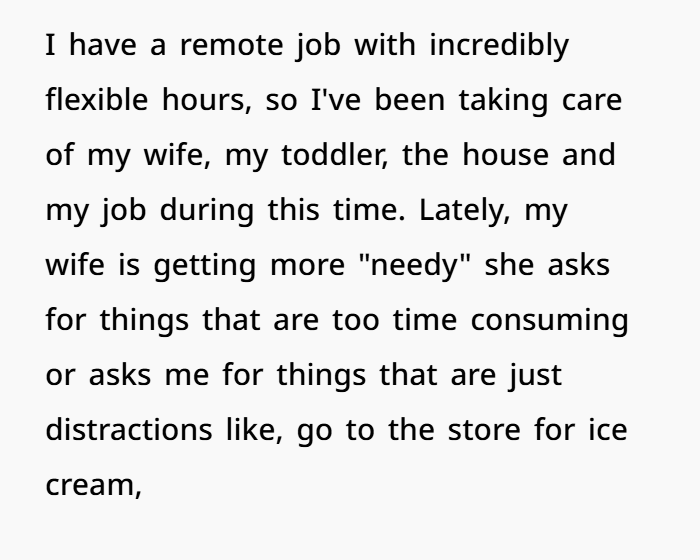
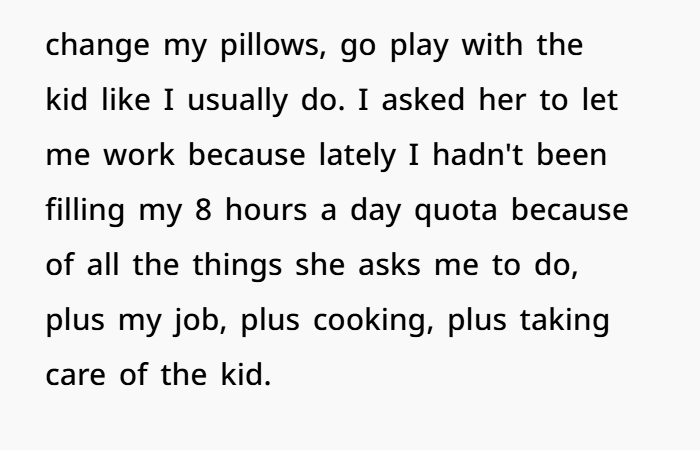
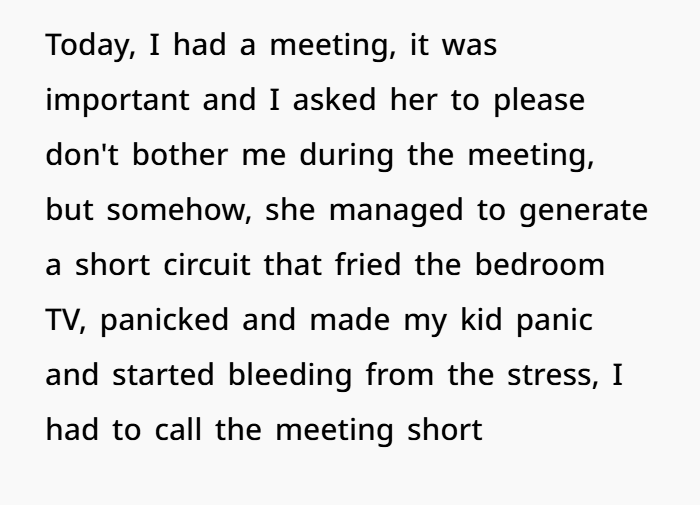
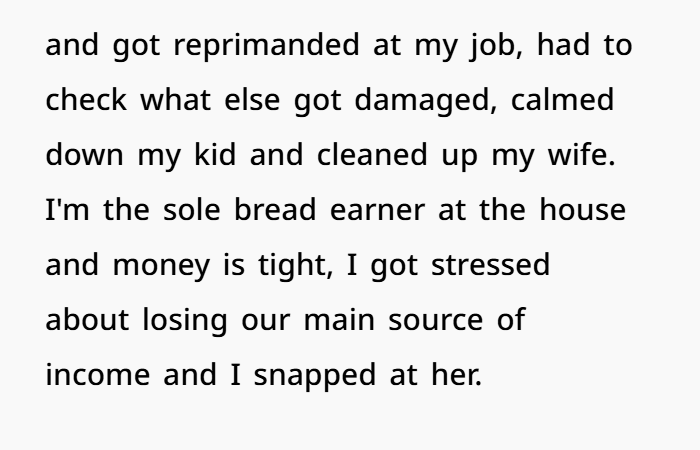
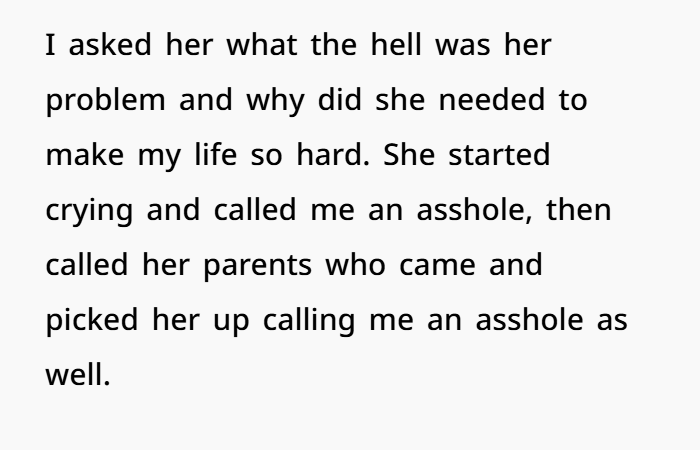
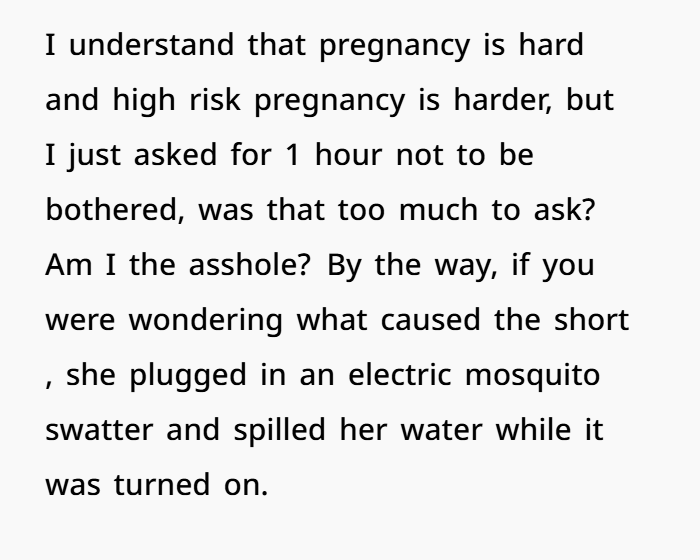
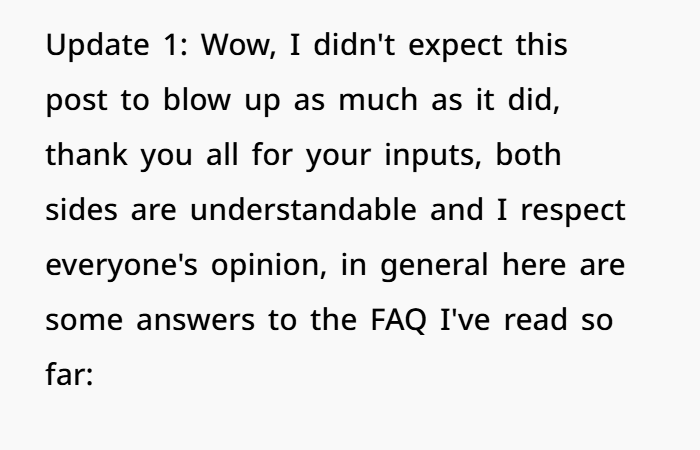
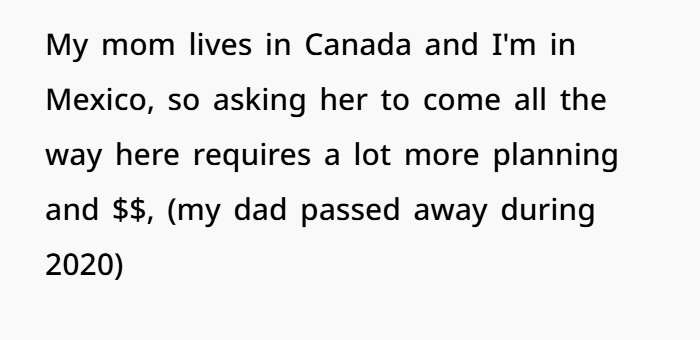
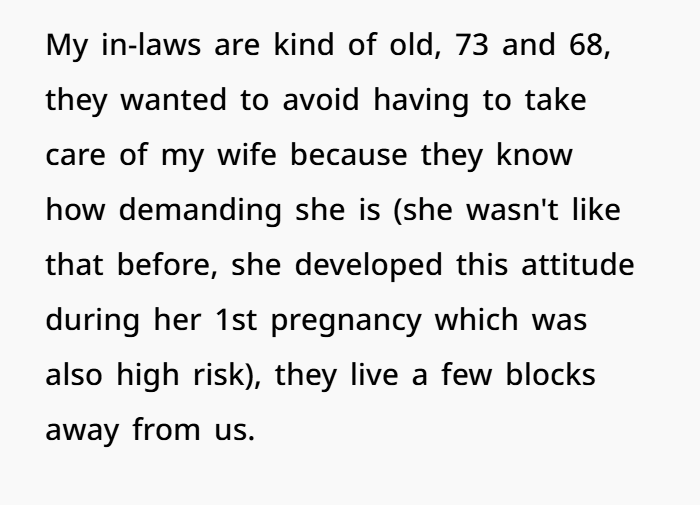
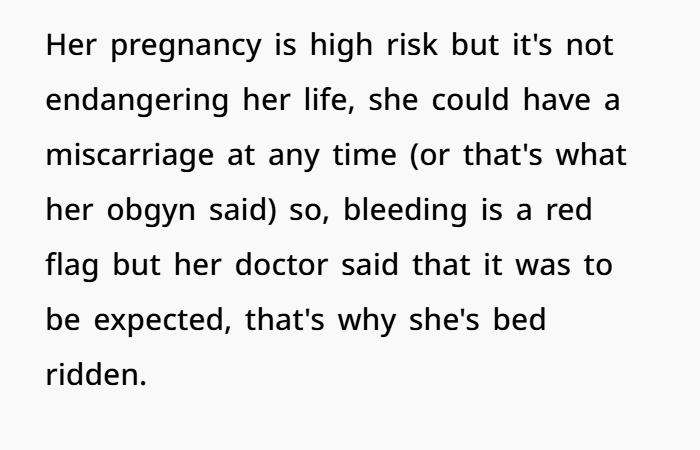
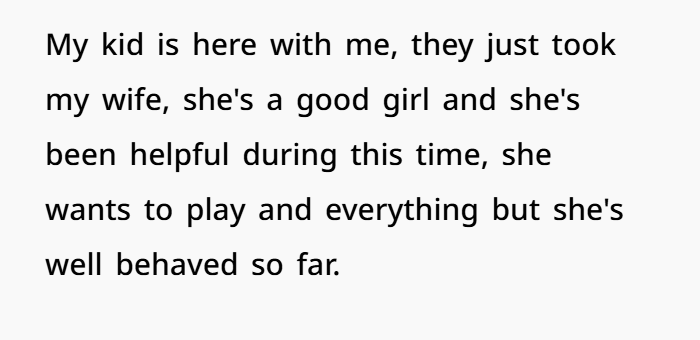
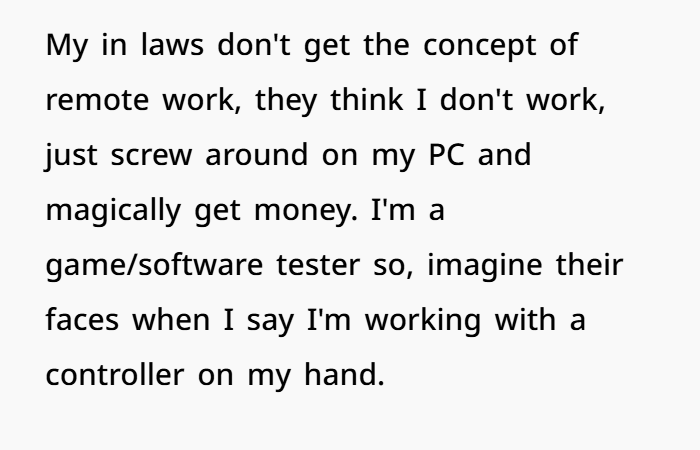

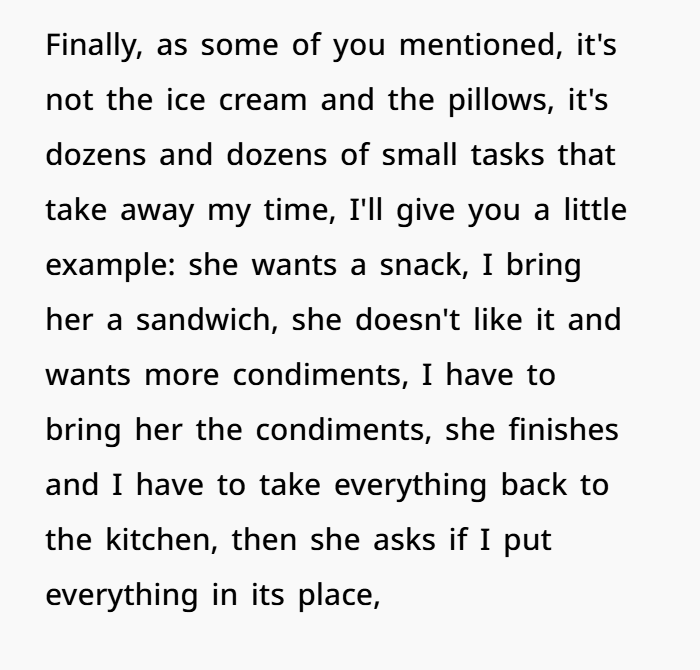


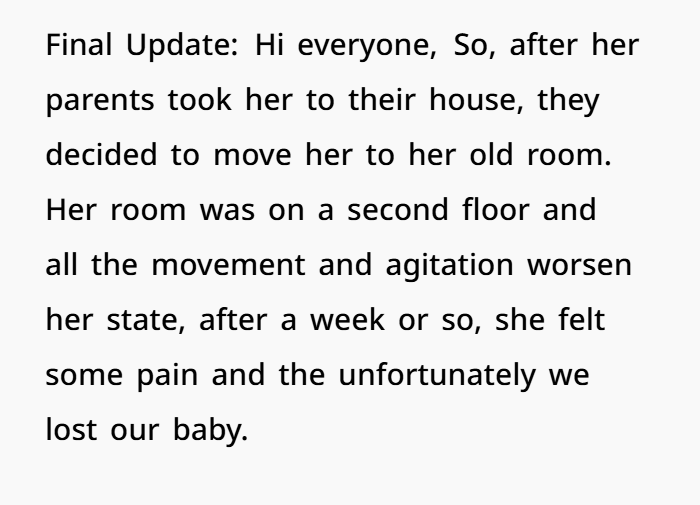
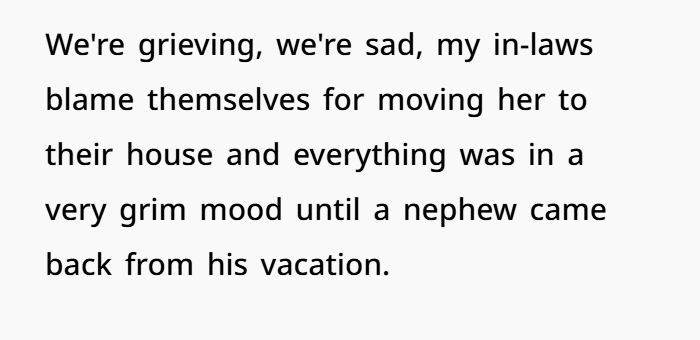

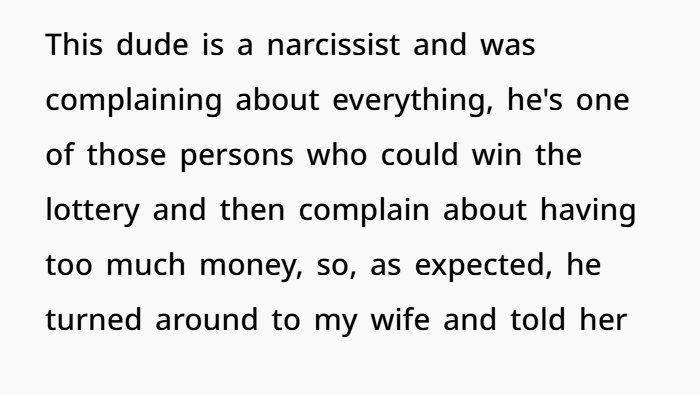
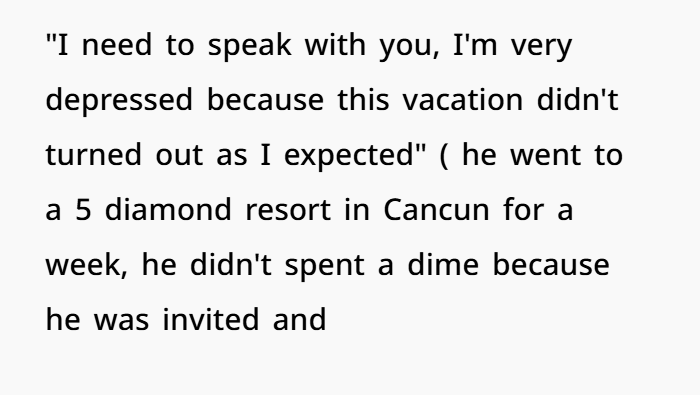
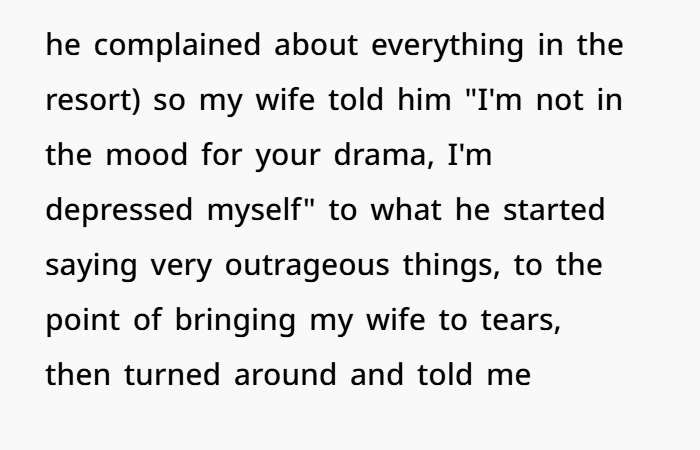




Below I explore the emotional terrain, competing burdens, moral complexities, and what your options look like now.

1. The weight your situation carries
Your life in this moment is extremely stressful:
- You’re the sole breadwinner. Losing hours or being reprimanded could threaten your job.
- You have a toddler to care for, needing attention, safety, emotional support.
- Your wife is bedridden, vulnerable, and probably experiencing fear, discomfort, physical pain, hormonal shifts, dependency.
- A high‑risk pregnancy is often full of anxiety, uncertainty, and desperation.
You’re under immense pressure from all sides — job, home, emotional responsibility — so your tolerance for disruptions is thin. That doesn’t excuse harshness, but it does help explain why you reached a breaking point.
2. The balance between empathy and self‑preservation
Because your wife is in such a fragile state, she depends heavily on you. Her “needy” requests—snacks, water, transformations of small tasks—are partly because she can’t move or do things herself, and maybe also partly emotional coping. Many of those demands aren’t malicious — they’re expressions of vulnerability, fear, boredom, physical discomfort, or emotional need.
Empathy demands that you acknowledge how hard this is for her. She might feel isolated, helpless, trapped. Sometimes what seems like “too many small asks” is her trying to feel agency or normalcy.
But empathy doesn’t mean infinite capacity. You also have limits. Setting boundaries, protecting your work, maintaining your mental health are valid. You’re justified in asking for interruption-free time, so you can do the work that keeps the home afloat and ensures income.
The hard line: can you honor both her needs and your own? That’s the tension you’re in.
3. Where the breakdown happened: the trigger moment
Let’s revisit what went wrong:
- You asked for one hour free from interruption (fair request given your roles).
- She caused a short circuit by spilling water into a plugged device, panic ensued, kid was upset and started bleeding (or at least bleeding).
- You cut your meeting short, were reprimanded, had to scramble to fix things.
- In your anger, you lashed out at her with harsh words.
Two things happen here:
- The cascade effect: one small accident magnifies under stress.
- The emotional exhaustion in you: when too many demands pile up, your threshold collapses.
Your reaction was fueled by real stress. But the line you crossed was using demeaning language and blaming her in a moment of breakdown. That’s harsh, especially when someone is deeply vulnerable.
4. Did you ask too much? Or was your reaction too much?
Was asking for “one hour” too much?
No, that seem reasonable. You asked for a block of time to work without interruption, so you can fulfill your job obligations. That’s a fair boundary.

Was your reaction disproportionate?
Yes — telling her she’s “making life harder than it needs to be” is harsh, dismissive, accusatory. It hits emotionally, especially in her fragile condition. You turned into blame, not boundary.
Reacting with anger in crisis tends to escalate, not resolve. It moves from “let’s manage this” into “you vs me.” That’s where the damage happens.
5. The fallout: grief, blame, and irreparable harm?
Now, as you revealed in your final update, tragedy struck: you lost the baby. That changes everything fundamentally. The emotional pain, grief, and trauma intensify the weight of every past interaction. Now, your harsh words aren’t just a hurtful moment — they may feel magnified in the context of loss.
In grief, people often look for blame — in themselves, in others, in chance. Your wife may replay your harshness as one more wound in an already bleeding heart. The in‑laws are furious, things are tense. The dynamic is raw, fragile, loaded with grief and guilt.
So your earlier reaction is now overshadowed by deeper pain. It doesn’t erase what you said, but it changes how you and she will heal from it. Your harshness is now a memory in a sea of sorrow.
6. Moral judgment: are you the asshole?
Given all that, here’s how I see it:
- You are not entirely the asshole. Many of your demands were reasonable; your stress and emotional state were under siege. The crossing point is where compassion should still restrain you.
- But also: you were partly in the wrong. That moment of lashing was excessive, especially given your wife’s fragility. Your method hurt rather than healed.
In the classic binary, you’re in the grey area. You had valid grievances. But your response breached a relational boundary — hurting someone already vulnerable.
After the loss, things shift. The moral weight becomes not just about what happened, but how you handle repair, healing, empathy, accountability now.
7. How you can try to repair and move forward
Given the stakes now (grief, marriage, family), here’s how to try to heal:
- Own your part, sincerely. Don’t couch it in “but I was under pressure.” You can say: “I deeply regret how I spoke to you. I was overwhelmed, and I lost control, and that was hurtful to you, especially when you were already suffering. I’m sorry.”
That apology must come from humility, not defensiveness. - Acknowledge her pain and grief. She lost a baby. She’s grieving. Your apology should center both the loss and how your words may have wounded her further in that moment.
- Ask for patience and space. She may not accept your apology immediately. She may need time. Accept that. Pressuring her to “move on” will backfire.
- Offer consistent support, not just words. Small acts of kindness, emotional presence, being gentle, checking in — over weeks and months. Let your actions show your remorse.
- Seek couples counseling or grief therapy. After a traumatic loss and relational rupture, guidance can help both of you process, rebuild trust, communicate better.
- Re‑establish boundaries sensibly. You still need uninterrupted time for work and rest. But you might negotiate: “If you need something, I’ll pause in safe windows.” Or schedule breaks. Structure helps reduce chaos.
- Protect your child. Your toddler is young but deeply sensitive to emotional climates. Strive for stability, love, calm, even when grief storms around you.
- Accept that some scars remain. Healing doesn’t mean erasing memory. She may always recall that moment. The question is: does your future conduct show that you deeply regret it and changed because of it?
Help from grandparents wasn’t an option, either


